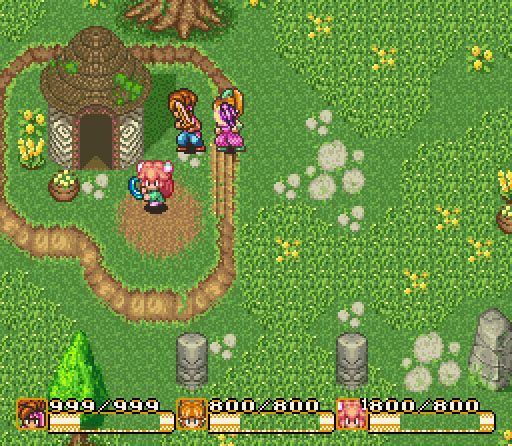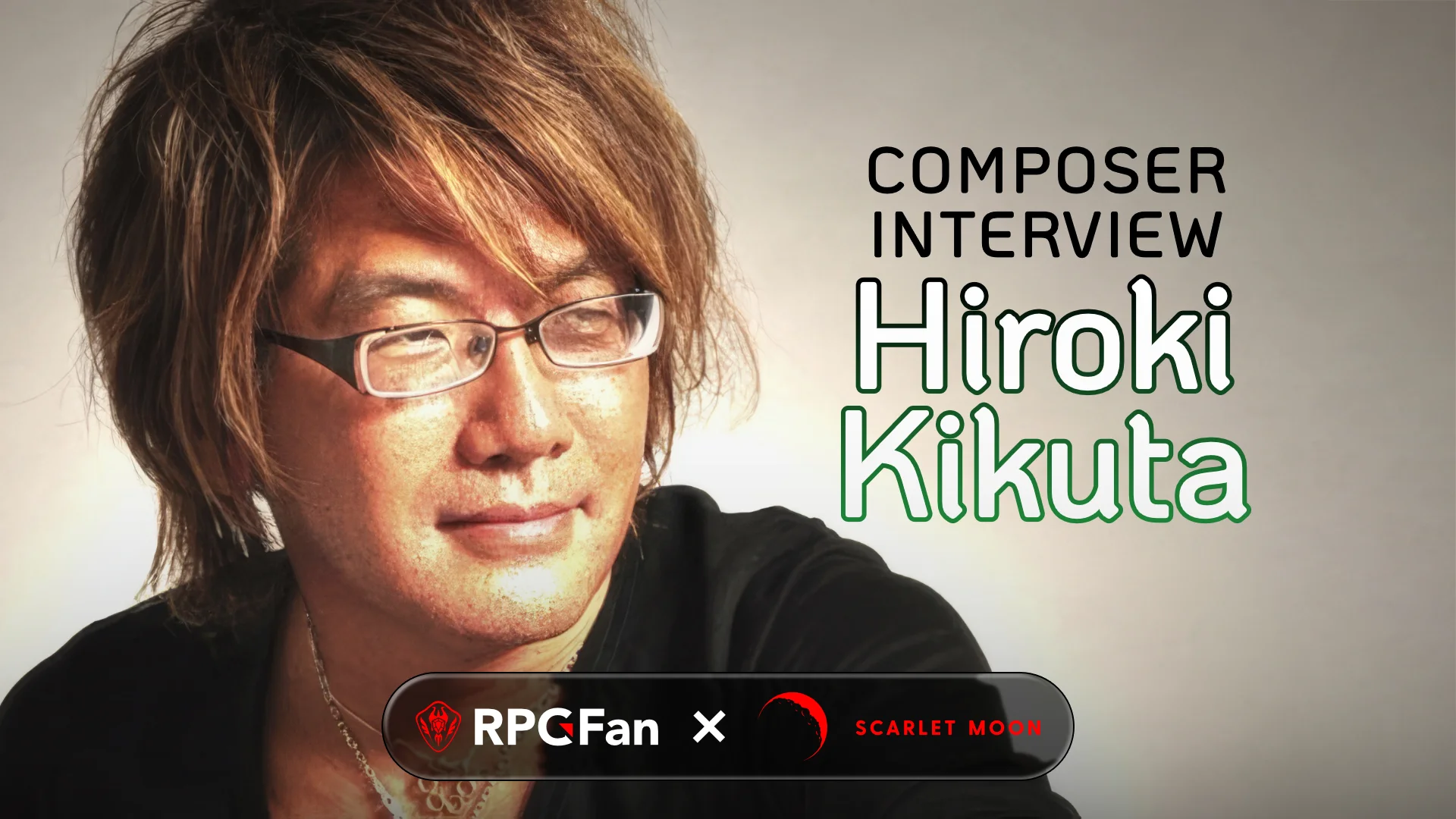Few video game composers leave such an indelible mark on their audience as Japanese composer Hiroki Kikuta has. His three decades-plus of soundtrack work includes Soukaigi (1998), Koudelka (1999), Indivisible (2019), and, oh yeah, he sired the music for Secret of Mana (1993) and many subsequent Mana/Seiken Densetsu games until as recently as 2024’s Visions of Mana. You wouldn’t have to look far to find a JRPG fan with Secret of Mana’s iconic opening theme burned forever into their brain. Over the past decade, Kikuta-san has taken his many artistic talents and has been using them for a variety of indie game projects from around the globe.
Via Scarlet Moon Promotions, we had the opportunity to ask Hiroki Kikuta a series of questions about his artistic sensibilities, his love of sci-fi, and his thoughts on the goals of VGM. Here’s our conversation.
Note: This interview is available in English, below, and in Japanese.
RPGFan: You’ve said before that your main goal in composing is to entertain the listeners. How do you strike the balance between your music servicing the story and scenes of a game versus making music that is listenable outside of the game’s context?
Kikuta-san: With a game’s BGM, it’s important to consider how closely it fits into the story and scenes of the game. I think that no matter how wonderful a song is or how lasting an impression it makes, it is worthless if it doesn’t fit closely into the game itself. If you can fulfill the BGM’s role and then add your individuality as a composer, then isn’t that the true strength of a game music composer? I personally think in this way and do my best at my job.
RPGFan: Your career is full of references to classic science fiction novels. Is there a sci-fi story you wish to be seen made into a game? How about a sci-fi story you’d want to compose a soundtrack for?
Kikuta-san: Honestly, there are too many sci-fi works that I hope will be made into games and it’s hard to choose one. But if I had to pick, it would be Stanislaw Lem’s The Cyberiad. It’s a masterpiece that excellently combines science, fantasy, history, and philosophy, and I have a personal affection for it—but at the same time, the narrative structure is game-like, so it’s a work that I have a strong affinity for and one that I, myself, would like to turn into a game. Also, as for a science fiction story I’d like to try writing a soundtrack for, I’d like to compose for anything by Alfred Elton van Vogt or Barrington J. Bayley, both of whom I’ve admired as a long-time fan.


RPGFan: With Scarlet Moon you’ve branched into working with developers outside of Japan and into various newer genres. How do your music sensibilities change when working with a non-Japanese developer?
Kikuta-san: In terms of the workflow and level of completion of work, there is no difference between Japan and overseas, but from my experience of being invited as a guest to various conventions and meeting overseas fans, I think that foreigners have a greater overall passion for games and content than Japanese people. It’s sad, but it seems that when you live in Japan, the fact that there’s an abundance of various fun content is taken for granted, and there is a tendency to underestimate the value of works created with Japanese sensibilities and to forget to respect the creators.
Rather, I feel that people outside of Japan are more likely to understand, seek, and appreciate the value of uniquely Japanese content. In fact, the vast majority of interesting pitches that come to me are from overseas. No matter how such proposals are brought to me, I believe that the passion, sincerity, and strength of heart that people possess are very important, and more than any other element, I want to treasure those who want to work and create with me.
RPGFan: Soon after the release of Secret of Mana, you made the arranged album Secret of Mana +, despite feeling like reception to the original was underwhelming at first. Is there another soundtrack of yours you’d like to revisit or rearrange?
Kikuta-san: Every production I’ve been involved in creating is made with my utmost effort at that moment, so no matter how it’s criticized or by who, it’s not important; if the people who play it or listen to it feel it’s fun, then that’s all that matters. I’m not interested in critiques like whether it’s good or bad music. I mean, think about it: when you’re a child, no one would think that way, right? Even now I create my work with a child’s heart, so I sincerely hope that the people who enjoy my work will also play and listen with a child’s heart and become absorbed in that world.
RPGFan: Over twenty years ago, you said in an interview that video games are for entertainment, not art. More recently you told Scarlet Moon that you are an commercial artisan but not an artist. Has video game music crossed the gap between other types of music, and, if not, what separates VGM from other music?
Kikuta-san: As an overarching premise, I believe that art and entertainment are not compatible. What I mean by that is that art does not necessarily make people happy, but entertainment definitely does. No one would call something that does not make people happy ‘entertainment.’ I create works based on artistic elements, but their ultimate raison d’être is to bring amusement, and their goal never deviates from entertaining and making people happy. Music is intrinsically nonverbal, so without being hindered by language barriers it can reach the hearts of any person in any country and penetrate deep into their souls. Wouldn’t it be foolish not to use that overwhelming power to make people happy?
RPGFan would like to wholeheartedly thank Hiroki Kikuta for his time and thoughtful answers, as well as Scarlet Moon for their connecting us with Kikuta-san. Aside from streaming some of his many soundtracks, you can listen to Hiroki Kikuta’s music on his Bandcamp page. Thank you to my wonderful wife for her plentiful help in translating.



